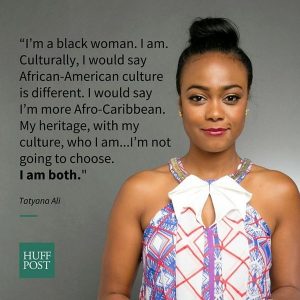A Weekly Link Round Up of Body Politics & Body Justice News
- Indian Country Today Media Network reports that Gyasi Ross has a new track called White Privilege 3 available for free right now on Soundcloud. It’s a response to another Seattle hip hop artist, Mackelmore – who released the controversial, White Privilege II, a song meant to offer allyship but “It’s actually about white guilt, which is more of a personal problem than a grave injustice… ‘I don’t want white people to butt out of people of color’s affairs,” Gyasi said, “but what I do want is those folks who consider themselves allies to study what being an ally means and to understand that (as he says in the song)real allies realize they don’t always have to speak.’”
- “Transgender prisoners in Texas who didn’t start hormone therapy before being locked up can now undergo a process that will allow them to start the medically necessary treatment. Previously, only prisoners who were already taking hormones when they were incarcerated were given access to that medication.” Sam Dylan Lynch shares 8 Things Transgender People Do Not Owe You on Everyday Feminism
- In NBC Universo’s “Black and Latino” documentary some of our favorite actors talk about the reality of being AfroLatino. “The Latino identity denotes an ethnicity, which means that Latinos exist in every color and race imaginable — and explaining the difference between race and ethnicity can be quite a cumbersome task to take on on a daily basis.” The testimonials get real about cultural confusion growing up, racism, bias in the industry and even in their own families.
- A Guatemala civil war took place in the 1960s that lasted decades and “killed 200,000 people, most of them indigenous Mayans. Soldiers used terror and sexual violence as weapons of war…. [N]ow, a group of women might receive some justice for the crimes committed against them. [L]ast week, the Guatemalan national court began a trial to prosecute two men for sexual slavery and abuse during the war. This is the first time in history that charges of sexual slavery during armed conflict will be prosecuted in the country where the violence took place, and activists hope this will set a precedent for prosecuting sexual violence in other countries.”
- “Rape is not a teachable moment. It’s not a life lesson. It doesn’t serve a purpose. It doesn’t make you stronger, wiser, more mature, or more self-aware. It isn’t a positive thing you can eventually learn or grow from. It’s a rape. People say, ‘everything happens for a reason’ or ‘what you’ve been through makes you who you are today’ but a rape doesn’t eventually better your life in any way. I don’t feel stronger, more aware, wiser, or somehow positively changed by my experience. I never will. In this case, I think the same is true of my disability.” – Anonymous, My Disability and My Assault are Not ‘Life Lessons’ on Sex & Privilege blog.
- Mulheres Rodadas — a slang term meaning women who’ve been around — was formed by Debora Thomé over a year ago with the aim of using the streets of Brazil’s Carnival festivals to raise feminists issues and speak out against misogyny. The feminist organization has taken up the issues of limited abortion rights, rape and expect to also discuss health issues around the current epidemic of the Zika virus and expanding abortion access around it. Thome told Vice News that approximately 2,500 joined the Rio bloco in 2015. “It turns out there were a lot of women who felt the same way but weren’t united.”
- Dianca London writes about the inherent benefits of being, young, white, pretty, and feminine and questions who Taylor Swift’s empowering in her recent acceptance speech for her Album of the Year Grammy. “When whiteness, affluence, and mainstream standards of desirability coexist in a systemically loaded space like the Grammy Awards, it is paramount that we examine the allotment of agency that is given to women like Swift… Her accomplishments, regardless of how deserving they may be, are a glaring reminder of the societal and economic benefit of whiteness and white femininity. Her triumphs are celebrated while her contradictory behavior remains overlooked.” London goes on to discuss the failures of white feminism.
- #Oscarsowhite got the Academy’s attention Academy president Cheryl Isaacs Boone declared that changes would commence immediately for new diversity initiatives. But Boone’s diversity plan excludes people with disabilities. Filmmaker, Dominick Evans runs regular forums on disability the film industry under the hashtag #filmdiss. #OscarDISs, is the hashtag campaign he has created to advocate for Academy diversity to include people with disabilities. A call on Dominick’s blog invites the disability community and allies to join the cause and take action.
